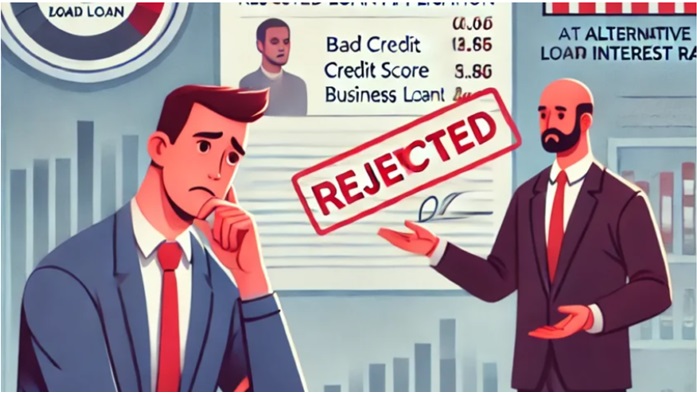Credit for Car Loans With Bad Credit can be challenging, but it is not impossible. Many lenders in Canada specialize in providing auto financing to individuals with low credit scores or no credit history. The key is to work with lenders who understand bad credit customers and offer loans tailored to their financial situation.
Approval chances improve when applicants demonstrate steady income, manage their debt responsibly, and provide a reasonable down payment. Interest rates and loan terms may be less favorable, but comparing multiple offers helps find the best available deal. This article explores practical options and strategies for securing a car loan despite having bad credit.
Understanding Credit for Car Loans With Bad Credit
Credit plays a crucial role in securing an auto loan, especially for those with poor credit histories. The level of credit affects loan approval chances, interest rates, and repayment terms. Borrowers need to understand how bad credit impacts financing, what credit scores lenders require, and common obstacles they face.
What Is Bad Credit And How Does It Impact Auto Financing
Bad credit generally refers to a credit score that falls below the average range, often under 600. It signals to lenders that a borrower may have a history of late payments, defaults, or high debt levels.
This negative credit history results in higher interest rates and stricter loan terms. Lenders may require larger down payments and limit loan amounts. It can also reduce the number of lenders willing to approve the loan.
Despite these challenges, borrowers with bad credit can still qualify for car loans. Success often depends on demonstrating stable income and managing debt responsibly.
Minimum Credit Score Requirements for Car Loans
Most lenders set a minimum credit score threshold, typically ranging from 500 to 620 for borrowers with bad credit. Scores below 500 may significantly reduce the number of available financing options.
Subprime lenders and specialized dealerships often accommodate lower credit scores but at higher interest rates. Those with scores between 580 and 620 have a better chance of approval with less severe loan terms.
Credit score requirements vary by lender, so comparing offers is essential. Additional factors like income stability and debt-to-income ratio also influence loan eligibility.
Common Challenges Faced by Borrowers With Poor Credit
Borrowers with bad credit face several obstacles:
- Higher Interest Rates: To offset risk, lenders charge increased rates, which raise monthly payments and total loan cost.
- Smaller Loan Amounts: Approval may cover only a part of the vehicle’s price, requiring larger down payments.
- Limited Lender Options: Many traditional banks decline bad credit applications, limiting choices to specialized lenders or dealerships.
- Stricter Terms: Loan durations may be shorter, increasing monthly payment burdens.
- Potential for Rejection: An unstable financial profile can lead to outright denial or requests for co-signers.
Understanding these challenges helps borrowers prepare better applications and seek appropriate financing partners.
How to Secure a Car Loan With Bad Credit
Securing a car loan with bad credit requires careful preparation, selecting the right lender, and taking steps to improve chances of approval and loan terms. Each of these actions can help reduce costs and increase the likelihood of successful financing.
Steps to Prepare Before Applying for a Loan
Before applying, the borrower should check their credit report to identify any errors or outdated information. Correcting mistakes can improve their credit score slightly and avoid unnecessary rejections.
They should gather proof of steady income, residence, and identity to meet lender documentation requirements. A larger down payment can reduce the loan amount and demonstrate commitment.
Comparing different loan offers beforehand helps understand typical interest rates and terms for bad credit loans. Preparing a budget ensures they can afford monthly payments without strain.
Choosing the Right Lender for Bad Credit Auto Loans
Traditional banks may have strict criteria that exclude bad credit borrowers. Instead, specialists or lenders focused on subprime auto financing are preferable for approval chances.
Credit unions often offer better rates and more flexible terms than dealerships or online lenders targeting bad credit buyers. Borrowers should enquire about co-signer options, which improve approval chances and lower interest costs.
Reviewing lenders’ fees, terms, and customer reviews helps avoid predatory loans. Transparency on interest rates and conditions is key to selecting a reliable lender.
Improving Approval Odds and Securing Better Rates
Providing a co-signer with good credit significantly increases approval odds and may lower interest rates. Increasing the down payment reduces lender risk, making loan terms more favorable.
Maintaining steady employment and showing proof of income reassures lenders of repayment ability. Avoiding multiple loan inquiries in a short period reduces negative marks on the credit report.
Improving credit over time by paying down debts and managing existing credit responsibly before applying can lead to better offers. Some lenders also consider current financial stability, not just past credit history.



